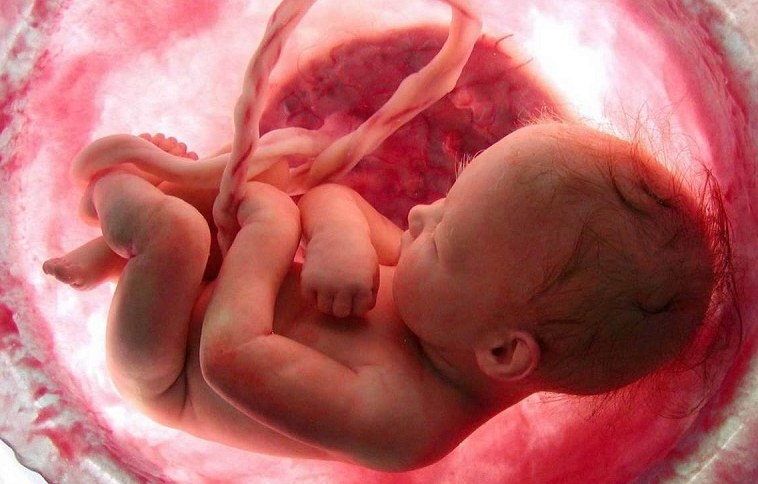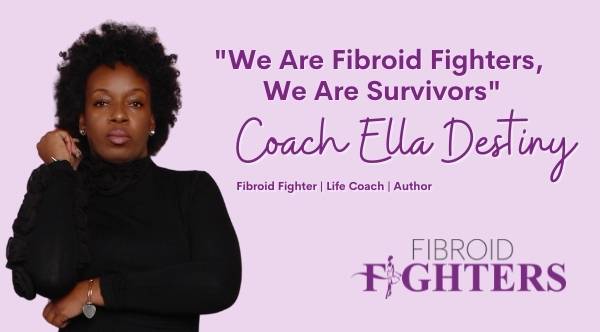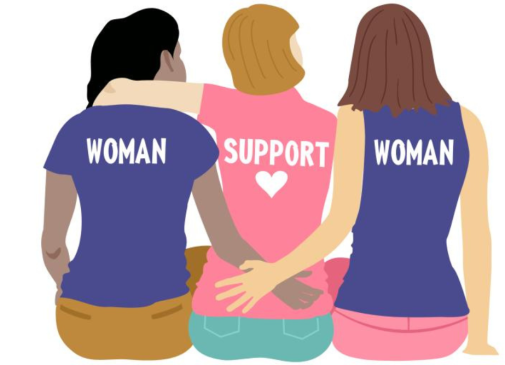

Are Fibroids In Our DNA?
Did you know that one of the risk factors for fibroids is genetics? If have a uterus and your grandmother, mother, or sibling has fibroids, you are at a higher risk of having fibroids.
National Institute of Health
There are multiple risks for developing fibroids. They include lifestyle factors, menstruating at an early age, being of African-American descent, and having a higher body mass index. These all can factor into whether or not you have a higher risk of having fibroids. Yet, fibroids are taboo in familial relationships and friendships and are rarely discussed.
One of our Fibroid Fighters’ supporters, Coach Ella Destiny, speaks about fibroids running in her family. She had to eventually get a hysterectomy that practically tore her body into two. According to Destiny, fibroids run on both sides of her family. Even more shockingly, her cousin had a hysterectomy when she was just 17 or 18 years old.

Fibroids Running in the Family
According to a study, genetics can indicate an increased risk of developing the condition. The research says that women with one or more close relatives with fibroids, particularly their mother or sisters, are more likely to develop fibroids themselves. While it shouldn’t be up to women to share their personal and sometimes painful experiences, they may be some of the only hope to spreading awareness and the treatment possibilities amongst others in need. Creating a community is one of the critical points of becoming more comfortable with your diagnosis, being seen, and making informed decisions for yourself that work with your lifestyle.
According to another study, nearly 26 million women between the ages of 15 and 50 had uterine fibroids. Fifteen million women are expected to have symptoms or other health issues. It means that fibroids are an epidemic. People with uteruses are in pain, it’s affecting their daily life and their emotions; they’re suffering. And sometimes, they feel like they’re dealing with this alone.
Talking About Fibroids With Friends
It might be difficult to discuss health issues with family members. That is why it is so important to have strong friendships to fall back on in times of need. Friends may provide us with an ear to listen to, a shoulder to cry on, and a nonjudgmental perspective. They can also help us feel more at home, boost our self-esteem, and reduce tension and anxiety.1 This goes for mental health as well. People need people, and it’s essential to know when it’s time to turn to them.
However, sometimes it’s hard to be vulnerable about something that hurts you simply. It may feel great by the time you get everything out, but it’s hard to start, all the same. Here are some tips for ensuring this conversation about having fibroids goes smoother.
Put yourself in a private place that you’re comfortable in. Somewhere where no one can listen in, and you feel at peace. Start with the small stuff. You don’t have to get so detailed, and your conversation partner can ask the questions they want to know more about. (However, if you’re comfortable with laying it all out, do that too!) Ask for advice – if you want it. Tell them what you want from the conversation: someone to listen to you or give advice.
Turning to A Support Group
Remembering that your friends and family are here for you can change everything. It gives someone to talk about your issues with, and who knows, perhaps they, too, have a friend or family who’s going through the same thing or they’re going through it. All it takes is one olive branch to kick-start a conversation, form a bond, and be able to talk to your friends.
What If I Don’t Have Friends to Talk to?
One of the most wonderful things about the 21st century is the internet and social media. Social media allows people from all walks of life, anywhere in the world, to discuss what they’re going through – and relate to each other. Search Facebook and Instagram for communities talking about having fibroids. Look for people and sites that share their stories, or videos about breaking the silence.
If you’re looking for somewhere to start, follow us on Facebook, Instagram, and/or Twitter. You can also sign up for our Newsletter for current news in the community, informational blogs, and tips and tricks for dealing with fibroids.
The Fibroid Fighters Foundation assists people in learning about fibroids, learning about their options, and receiving an accurate diagnosis. We’re here to help you with any questions regarding your period or other women’s health concerns. Call us at 855.455.5262 or get in touch with us online.
Sources Cited:
- https://www.mentalhealthfirstaid.org/2019/08/why-healthy-friendships-are-important-for-mental-health/







